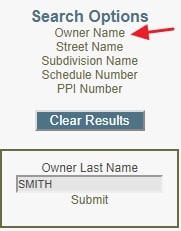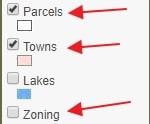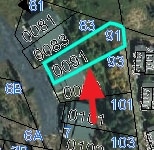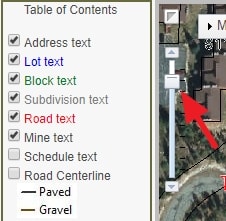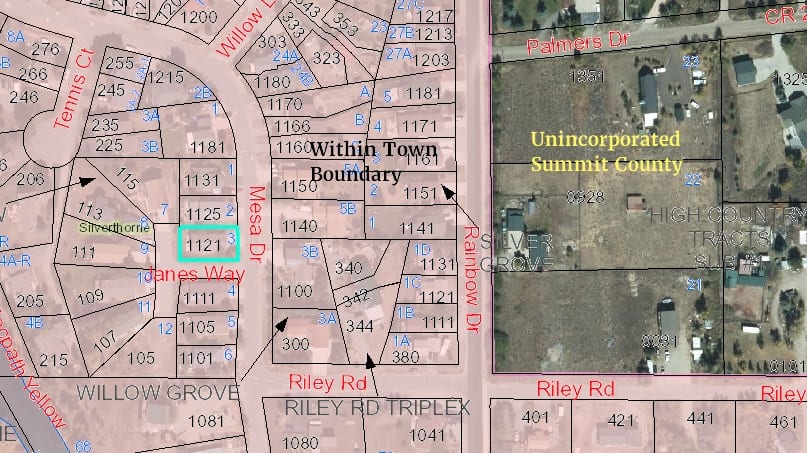How to Determine Which Rules Apply to Your Summit County Short-Term Rental
In Summit County, Colorado, the towns of Breckenridge, Dillon, Frisco and Silverthorne each enacted ordinances regarding short-term rental properties. Likewise, Summit County also recently passed its own short-term rental regulations. Accordingly, for a property owner who wants to stay in compliance, it’s important to find out which set of rules apply to your Summit County short-term rental and whether the new rules actually apply to your property.
Location of Your Summit County Short Term Rental Property
The first thing to know is your Summit County property should be subject to the rules of only one local governmental authority. To determine which set of rules apply, you just need to know exactly where your short-term rental property is located. That may sound easy, but it’s actually a matter that’s frequently confused in Summit County. If you operate a short-term rental property inside the boundaries of an incorporated town (like Breckenridge, Dillon, Frisco or Silverthorne), the short-term rental ordinance for that specific town would solely apply, and you would obtain a license from the applicable town. Otherwise, if you operate a short-term rental property outside town boundaries in an unincorporated area of Summit County (like Copper Mountain, Dillon Valley, Keystone, Summit Cove, or Wildernest), then the Summit County Short-Term Rental Regulations apply.
The best way to figure out whether your property lies inside or outside town boundaries is by using the Summit County Map Tool.
- When you arrive at the Summit County Map Tool site, a disclaimer will appear, and you should click the “accept” button
- Next, click the “Owner Name” link from the right menu bar, enter your last name, and click on “Submit”
- When you choose your full name from the list that appears, a map will open on screen as well as a “Table of Contents” toolbar on the left side of the map
- Within the “Table of Contents” toolbar on the left, we’ve found it might be easiest to read the map if the “Parcels” and “Towns” check boxes are both checked. We’ve also found it easier to read the map if the “Zoning” checkbox is left unchecked
- Your property should be highlighted inside the map with a bright blue line around it
- On the left side of the screen, just to the right of the “Table of Contents” toolbar, you’ll see a vertical control bar that will allow you to zoom in and out from your property.
- If your property appears in an area shaded with a pink color, it is within a town, and the applicable town short-term rental ordinance applies. If your property does not appear to be in an area shaded with a pink color, it is located within unincorporated Summit County, and the Summit County regulations apply
If still in doubt whether your property is inside or outside a town boundary or in unincorporated Summit County, you can obtain confirmation from the Summit County Planning Department by reaching out either via email (STR@summitcountyco.gov) or phone (970-668-4185).
Does Your Summit County Property Use Fit the Definition of a Short Term Rental?
From your short-term rental property location, you’ve determined which set of rules apply. The next thing to know about compliance is the subject matter to which these new rules apply. The rules don’t apply to all properties in Summit County. Instead, the general intent is that they apply to those property owners who are short-term renting during some portion of a year. Along those lines, the various Summit County town and county governments are fairly uniform in stating which properties are subject to their new rules. More specifically, the new regulations each provide written descriptions, and a short-term rental in Summit County is generally defined as any property offered for rent or lease for a period of less than 30 consecutive days. Accordingly, if you’re engaged in long-term rentals in Summit County for more than 30 consecutive days or some other activity with your property that do not meet the applicable definitions within the rules, it’s possible the new short-term rental regulations may not apply to your property. In sum, it’s important to read the rules carefully in this regard.
If you’re still in doubt whether parts of the new Summit County short-term rental rules apply yo your property, you can always give the Town or County a call (depending on whether you live inside or outside town limits).

